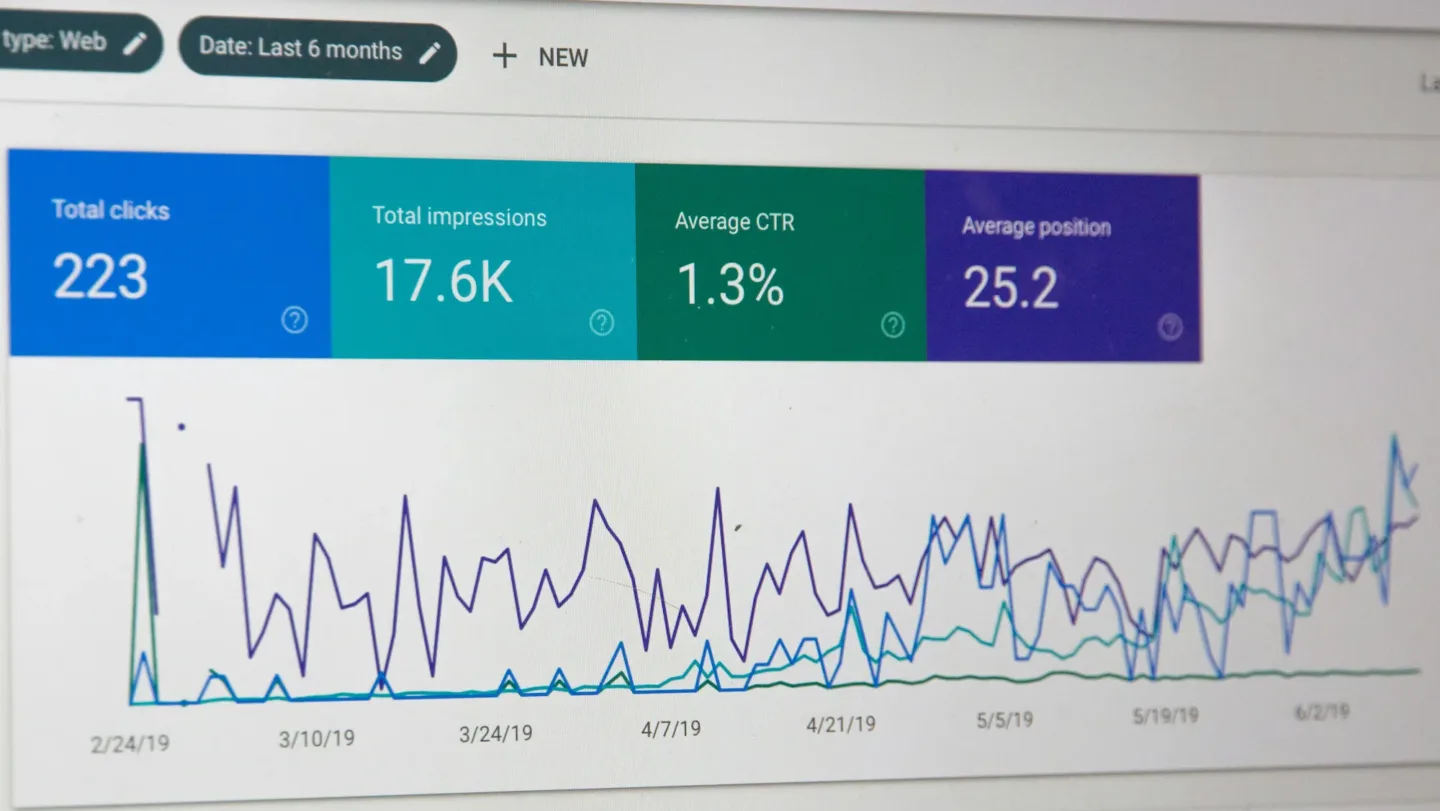In the world of search engine optimization (SEO), knowing how to use effective strategies can make all the difference for your online presence. Whether you’re a seasoned webmaster or just starting out, let’s go through a must-have checklist to help optimize your website for better search engine rankings.
The Bare Minimum
Lets start with the basics.
- Use H1 Tags: Every page should have an H1 tag with the main keyword.
- Domain Name: Pick one that is most relevant to your brand. Do not keyword stuff.
- Link New Pages: Ensure every new page is linked from an existing one. No island content.
- Descriptive Page Titles: Page titles should describe content and include keywords.
- Use HTTPS: Secure your site with HTTPS to gain trust from Google and users.
- Use Images: Images enhance user experience and content.
- Basic Pages: Have essential pages like About, Privacy Policy, Terms, and Contact.
- Internal Links: Use internal links to help users navigate.
- Be Patient: SEO takes time – patience will be rewarded.
- Backlinks: Get backlinks from legitimate sites; avoid buying them.
- Invest in Good Hosting: Reliable and fast hosting is simple, but crucial.
Website Management for SEO
Building and maintaining a website for top-notch SEO is an ongoing effort that needs a strategic approach. Keeping your site relevant, secure, and user-friendly is crucial for climbing those search engine ranking pages (SERPs).

Optimizing website content for SEO
- Quality Backlinks: Backlinks from related sites are more valuable. Quality > Quantity
- Use Shopify for E-commerce: Shopify is a great platform to start an online store.
- Use WordPress for Blogging: WordPress is ideal for starting a blog.
- 301 Redirect Removed Pages: Redirect old pages to maintain SEO value.
- Use a CDN: Content Delivery Networks speed up your site.
- Use Either www or non-www: Redirect one to the other to avoid duplicate content.
- Use Sitemap.xml: Help Google find and index all your pages.
- Responsive Design: Ensure your site works well on all devices. Positive UX is prioritized.
- Monitor Uptime: Use tools like Uptime Robot to ensure your site stays online.
- Proper 404 Pages: Return correct 404 headers for non-existent pages.
- Ignore Meta Keywords: If anyone tells you to use them, RUN. Search engines don’t care about meta keywords. In fact, there’s evidence it hurts your rankings.
- Keep URLs the Same in Migrations: Preserve SEO value by keeping URLs consistent.
- Use Alt Text: Alt text improves accessibility and SEO.
- Internal Linking: Use internal links to guide users and search engines.
- Use Breadcrumbs: Help users and search engines navigate your site.
- Schema Markup: Use schema to help search engines understand your content.
- Descriptive URLs: Use short, descriptive URLs.
- Canonical Tags: Use canonical tags for duplicate content.
- Make Your Website Fast: Google dislikes slow-loading sites, so speed up your site. You can find a writeup on optimizing your website for speed here
Content and Strategy
Creating high-quality content and having a well-defined strategy are pivotal for successful SEO. By understanding your audience and delivering valuable, engaging content, your site can achieve higher visibility and better user engagement.

SEO content strategy and planning brainstorm session on whiteboard
- Answer Questions: Build content around answering user questions. Think about how you use Google. We ask questions, so have the answers ready.
- Include FAQs: Well structured FAQ sections increase visibility and help users find information faster – especially when they appear in Google’s rich snippets.
- Plan Monetization: Think about how to monetize your site and build content to support that.
- Hire Specialists: Hire subject matter experts internally or use platforms like Upwork to find specialists.
- Avoid “Keyword Density”: Focus on contextual relevance rather than volume.
- Launch Quickly: Start fast and refine strategy over time. Google can keep up.
- Patiently Monitor Algorithm Changes: Updates often cause initial ranking shifts that stabilize over time. Acting too soon can do more harm than good.
- Check Robots.txt: Ensure it’s not blocking Googlebot.
- Avoid Trademark Domains: Don’t buy domains with trademarks of other companies.
- Check Backlinks: Monitor who’s linking to you using tools like Ahrefs.
- Avoid Black Hat SEO: Stick to sustainable, long-term SEO techniques.
- Expired Domains: Use cautiously as Google may consider it manipulative.
- Clear Calls to Action: Guide users with clear CTAs.
- Evergreen Content: Create content that remains relevant over time.
- Target Long-Tail Keywords: New sites should target long-tail keywords to build authority.
- Ignore Keyword Density: Keyword density is outdated; focus on content quality.
- Use Google Autocomplete for Ideas: Generate content ideas from Google Autocomplete.
- No Ideal Article Length: Write as much as needed to cover the topic.
- Link Out: Don’t be afraid to link to other relevant sites.
- Be Cautious with Buying Links: It can be risky and against Google’s guidelines.
- Meta Descriptions: Aim for less than 160 characters. Sometimes Google rewrites them for you. 🤷♂️
- Descriptive Anchor Text: Use keywords in anchor text for links.
- Natural Link Building: Create great content that attracts organic backlinks.
- Use a Content Calendar: Plan content ahead, especially for seasonal topics.
- Enhance Existing Pages: Improve, update and add to pages that are already performing well.
- Build a Brand: Establish authority by building a recognizable brand.
- Focus on Topics: Write about topics naturally instead of focusing on keywords.
- Update Evergreen Content: Keep evergreen content up-to-date.
- Create FAQs: Include FAQ sections to answer common questions.
- YouTube for Ideas: Use YouTube to find popular content ideas.
- Build an Email List: Offer valuable content in exchange for email addresses. Nurture leads and drive them back to your website
- Index Non-Web Pages: Include documents like PDFs in your SEO strategy.
Essential Analytics Strategies
Configure analytics to monitor, assess, and shape your SEO strategies. By leveraging detailed insights and data, you can identify trends, monitor competitors, make informed decisions, and continuously improve your website’s search engine performance.

Dashboard displaying website and SEO performance
- Google Trends: Analyze trends and compare keywords with Google Trends.
- Experiment: Test and measure changes to see what works.
- Use Google Search Console: Monitor your site’s performance in Google Search Console and presence in search results.
- Set Up Analytics: Use analytics to track and understand site traffic.
- Set Up Search Alerts: Monitor new questions with search alerts.
- Watch Your Competitors: Learn from competitors’ changes and strategies. Replicate what works and then iterate.
- Don’t Worry About Bounce Rate: Focus on user intent and conversions.
- Bulk Search: Use bulk search tools for comprehensive keyword analysis.
- Check Competitor Backlinks: Find linking opportunities by analyzing competitors.
- Understand Seasonality: Monitor and recognize seasonal traffic patterns.
- A/B Testing: Continuously improve pages through A/B testing.
- Google Business Profile: Register your business for local SEO benefits.
- Use Local Listings: Get listed in local directories to improve local SEO.
- Location Pages: Clearly list physical locations and details on your site.
Continuous Learning and Staying Ahead
In the fast-changing world of SEO, it’s key to keep learning and educating yourself to stay ahead and keep up with the latest strategies.

Group of marketing professionals gathering at a local SEO Meetup
- Follow Industry Leaders: Follow top SEO blogs and experts on social media to stay updated with industry news and best practices. Rand Fishkin, Neil Patel, etc.
- Attend Conferences/Events: Attend conferences, workshops, and events related to SEO to network and learn from industry leaders.
- Take Online Courses: Take online courses or certifications offered by trusted sources to deepen your knowledge and understanding of SEO.
- Join Communities/Forums: Join online communities and forums related to SEO to ask questions, share insights, and learn from others in the field.
- Read Case Studies: Read case studies of successful SEO strategies to gain insight and ideas for your own website.
- Join Webinars: Attend webinars hosted by experts to learn about new strategies and tactics.
- Stay Up-to-date with Technology Advancements: Keep yourself updated on advancements in technology that may impact SEO, such as voice search
- Read Google’s Official Documentation: Avoid penalties and stay informed on best practices directly from Google through their documentation.